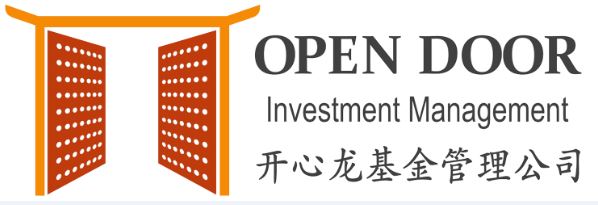Overcoming the cold winter and waiting for spring
Taiwan stocks continued to lead Greater China equities in December, rising another 3.0 per cent on strong foreign inflows, while the Taiwan dollar rose 2.2 per cent to a five-month high. The A-share market continued to come under pressure, with the Shanghai-Shenzhen 300 index falling 1.8 per cent in spite of the renminbi strengthening to A seven-month high; Hong Kong's Hang Seng narrowly closed flat; The MSCI index of Shanghai, Shenzhen and Hong Kong investable markets continued to fall 1.9 per cent this month.
Macroeconomic data have been mixed. In November, power generation and electricity consumption of the whole society increased by 8.4% and 11.6%, respectively, of which wind power increased by 26.6% and solar power increased by 35.4%. The output value and profit of industrial enterprises increased by 6.6% and 29.5% respectively. But the consumer price index fell 0.5 per cent from a year earlier, the biggest monthly decline in three years, as deflationary pressures continued to mount. The producer price index (PPI) fell 3 per cent from a year earlier, falling for the 14th straight month. The manufacturing PMI fell 0.4 percentage points from November to 49 percent in December, while the non-manufacturing PMI rose 0.2 percentage points from November to 50.4 percent. The non-manufacturing business activity index remained at a high level, possibly reflecting a faster expansion in infrastructure and construction activity.
This month, the Central Economic Work Conference made the establishment of a modern industrial system a priority for next year, and stressed the implementation of a prudent monetary policy and a more proactive fiscal policy. Subsequently, major banks have cut deposit rates one after another, releasing more policy easing signals. In our view, the deposit rate cut will leave room for banks to further reduce lending rates, and some deposits may flow into equity assets, including the A-share market.
The real estate market remains the focus of attention. The Ministry of Housing proposed to start a new round of affordable housing planning and construction, divided into two types of affordable housing with rent and distribution. The construction scale and specific operational guidelines of affordable housing deserve our close attention. In addition, first-tier cities such as Beijing and Shanghai have also optimized their real estate policies by lowering the down payment ratio and mortgage interest rates. Whether the adjustment of the loan restriction policy in first-tier cities will form an effective stimulus to housing demand, let us wait and see.
Tencent's share price came under panic selling after the release of a draft regulation for online gaming sparked fears of a government crackdown on online gaming. However, the regulator tried to assuage market concerns by giving a positive review of the draft, but also approved 105 games for domestic release, a record single approval, and promised to review the controversial provisions on the basis of consultation with all parties. Many gaming companies have also announced share buyback programs.
The 2023 version of the National Medical Insurance Catalog was announced and will be implemented on January 1, 2024. The success rate and price reductions of drugs that are negotiated or auctioned into Medicare are better than expected. In particular, 25 innovative drugs participated in the negotiations, the success rate was 92%, and the average price reduction was 4.4% lower than in 2022.
A-share listed companies set off A buyback boom. As of December 29, more than 1,334 A-share listed companies (accounting for 25% of the total number of listed companies) have announced share buybacks this year, with A cumulative buyback amount of about 90.5 billion yuan. A large number of buybacks by listed companies are conducive to boosting investor confidence.
We expect Taiwan's leadership election on January 13 to end peacefully, which would remove one of investors' concerns; Heading into 2024, however, the acrimony of the US presidential campaign could once again exacerbate US-China tensions; Rising protectionism in the West will pose a further threat to China's exports; Of course, the Fed's "inflation is transitory" doves will also face challenges.
With the recent slowdown of inflation pressure in the United States, the market expects that the Federal Reserve will cut interest rates several times next year, the US dollar index is under pressure, and the depreciation pressure of emerging market currencies is relieved. We expect further RRR cuts and interest rate cuts next year, and investors will return to the market as more positive and sustained signals of economic recovery emerge.

